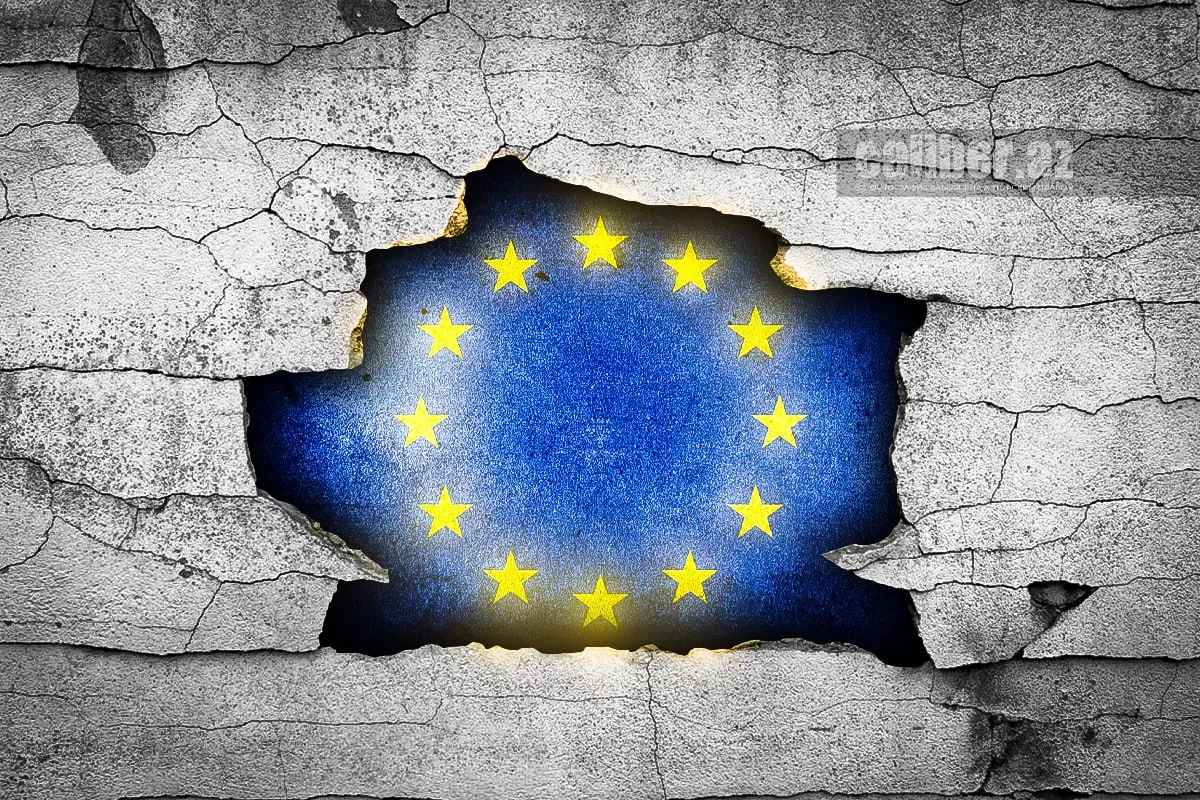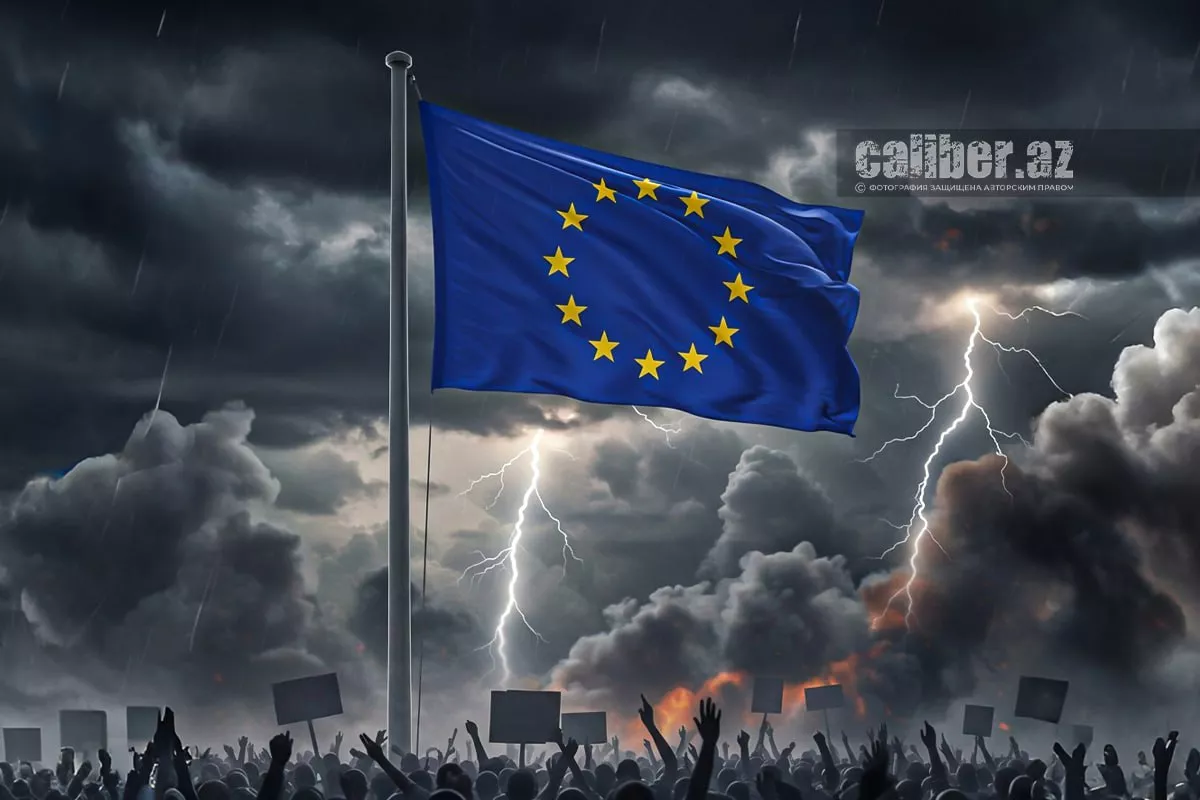Half-decay of Schengen: EU countries reinstate border controls The end of open borders?
Currently, 10 out of 29 Schengen Area countries have reinstated border controls within the zone itself. All of them have stated that this move is "temporary," but the situation seems to be heading toward becoming a permanent fixture. Moreover, it can be effectively said that the Schengen Area, which ensured the freedom of movement within the EU and neighbouring countries, is undergoing a partial collapse. At the same time, along with Schengen, fault lines have begun to emerge in the EU in the areas of security, economics, and ideology.
Irresponsibility masked as humanity
Over the past year and a half, Austria, Germany, Denmark, Poland, Slovakia, Slovenia, Norway, France, the Czech Republic, and Sweden have all begun to control their borders within the Schengen Area. It has happened before that Schengen Agreement participants introduced border controls within the zone, but only for short periods, and never before have so many countries acted simultaneously on such a large scale. Today, this is not just a third of the participants in the zone—if you look at the map, it becomes evident that the entire Schengen Area, established in 1995, is fragmented. When you exclude the microstates, island nations, and countries that are part of Schengen but not the EU, it turns out that only a few borders remain uncontested within the "old EU"—between Belgium and the Netherlands, between Spain and Portugal, and between Switzerland and Italy.
Among the reasons cited are illegal migration, terrorism, and regional instability. But the main factor is the shift in the domestic political landscape of EU-NATO countries, driven by the irresponsible policies of the Euro-liberal establishment regarding freedom of movement. Today’s non-establishment opposition forces across the EU are rising to power by denouncing the absurdity of migration policies just as loudly as they call for severing economic ties.
The collapse of the Schengen Zone has crept up on the region rather quietly. Amid the loud propaganda of the liberal media and political establishment in the late 2010s, the EU saw the emergence of several absurd situations.
First, hundreds of thousands of refugees were accepted in violation of agreed procedures. Notably, many of those arriving during the so-called “Syrian wave” of the mid-2010s were not actually from Syria but from other countries in the region. The sheer scale of migration from Syria to the EU drove down the cost of illegal border crossings so dramatically that virtually anyone could afford the journey. As a result, the influx of hundreds of thousands of migrants overwhelmed the entire system for processing asylum applications.
The key issue was that many migrants refused to remain, as required by EU law, in the first member state they entered; instead, many simply moved from country to country. Political leaders essentially turned a blind eye to this. Consequently, since 2011, Germany has consistently ranked first among EU countries in the number of asylum applications received. Peaks were recorded in 2016 and 2023, when Germany accepted over a million asylum seekers—first from Syria, and later from Ukraine (the latter under significantly more comfortable and preferential conditions, a hypocrisy quietly noted by local diaspora communities).
Under the fanfare of these “emergency decisions,” the EU’s internal system for managing migration flows was effectively dismantled.

The liberal media portrayed this governmental failure as a success—claiming that Europe had proven its humanity while gaining a new, dynamic workforce. German Chancellor Angela Merkel effectively invited refugees to come, famously assuring: “We can manage this.” Meanwhile, ordinary citizens were appalled as everyday security visibly declined, and they increasingly linked this to ongoing political decisions.
Ten years ago, most German stores had no security guards; bank lobbies with ATMs were open around the clock; public offices could be freely accessed at almost any time; and drug dealing was largely confined to the margins of society. It is not the Syrian refugees themselves who are responsible for the deterioration of these conditions—but rather the consequences of neoliberal reforms introduced by politicians who remain in power. Still, many citizens formed their own interpretations of what was happening and began to question their leaders.
For many, the dramatic breakdown of migration policy during the “Syrian wave” symbolised a deeper failure. This collapse could have been prevented—had the EU not insisted on preserving the Schengen Zone at all costs. Efforts by some Schengen countries to reintroduce border controls in 2016 were too limited to be taken seriously. Witnessing all of this, many EU citizens began casting their votes for anti-establishment opposition parties.
The migration policy of the ruling Euro-liberal elites has become their Achilles’ heel, dragging them down politically. According to a January poll conducted by the reputable German research institute Infratest Dimap, 68% of Germans support reducing the intake of refugees, while only 10% believe that state authorities are capable of controlling the number of arrivals—or even properly identifying them.
However, the absurdity extended beyond refugee policy. At the height of the pandemic in 2020, the EU closed its external borders—a move that, incidentally, contributed to fuelling the war in Eastern Europe by severing human, business, and informational ties. All of this was justified as a measure to protect public health. Yet, at the same time, the virus continued to spread freely across the EU through its open internal borders. This issue became taboo, as it touched upon the sacred cow of the Schengen Zone and the ideal of EU "unity."
“Swan, Crab and Pike” as a symbol of the EU
But eventually, these taboos began to break. It all started in Eastern Europe. In the early 2020s, some countries in the region first quietly began pushing refugees back to the countries they had come from. Then, more openly, they deployed army units to handle them, banned humanitarian organisations from operating in border areas, and restricted media activity there. For the first time within the Schengen framework, a precedent was set: the outright refusal to accept asylum seekers. And in other EU countries, the question began to emerge—wait, is that allowed? As a result, German security forces today collect refugees arriving from Poland and send them straight back.

Soon after the outbreak of the Russia–Ukraine war, the Baltic states—followed by Finland—tore a new hole in the Schengen system itself. They began by refusing entry to Russian citizens holding Schengen visas issued by other countries. Later, some of them unilaterally closed their respective sections of the Schengen Zone’s external border, as well as that of the EU—leaving other members to pretend nothing was happening, even though this involved a supposedly common external frontier.
Against the backdrop of the Schengen Zone’s growing instability, the logical move for Europeans would have been to consolidate it—restoring order and ensuring that all member states, including the “new” radically anti-Russian Eastern European countries, adhere to its rules. This would have helped prevent cooperation within the bloc from resembling the proverbial tale of the swan, the crab, and the pike, all pulling in different directions.
Instead, however, the Brussels establishment chose… to diversify the membership even further and expand the zone into the Balkans. In 2023–24, Croatia, Bulgaria, and Romania were added to Schengen.
All of this looked particularly ironic given how EU countries simultaneously tried to downplay scandals involving the inability of new member states to issue visas properly—or even to ensure basic functionality of their state institutions. These issues only came to light when they became politically useful to the liberal establishment in its battles with opponents.
For example, as soon as pro-Brussels liberals recently won in Poland, it was “discovered” that the previous conservative government had been responsible for issuing hundreds of thousands of Schengen visas on dubious grounds. An estimated 350,000 may have been granted in exchange for bribes. The story of Schengen visas being sold—including in Africa—sounded particularly amusing given how, under the conservatives, Polish security officials used to warn in interviews about the "demographic threat" posed by Africans supposedly trying to infiltrate the “European paradise.” Signs of abuse had surfaced earlier—Poland’s foreign ministry even advertised its Schengen visas on TikTok—but the scandal was only released to the media when it became useful to discredit opponents.
And if such a massive fraud could be hidden for years, how many smaller-scale ones are still buried?
On the eve of deportations
Following the revelations, German authorities demanded explanations from their neighbours and Schengen partners, with Chancellor Scholz directly accusing Warsaw of facilitating the surge in illegal migration into Germany. Pressure was mounting on the ruling Euro-liberal coalition from the increasingly popular opposition party, Alternative for Germany (AfD). In response, Euro-liberals began co-opting AfD’s rhetoric. In December, for the first time since the Schengen Zone was created, Germany reinstated border controls across all of its land frontiers—albeit still mostly limited to major transit routes.
The newly appointed Chancellor, Christian Democrat Friedrich Merz, built his political platform on demands for full-scale border checks, expanded deportations, and cuts to welfare payments for certain categories of asylum seekers. German police, for their part, began publicly linking a portion of criminal activity to migrants—many of whom remain unidentified, and some of whom have criminal backgrounds in their countries of origin.
With the anti-migrant Trump team returning to power in Washington, Germany and other EU countries quickly adjusted their tone. Recently, German authorities admitted that in 2024, asylum seekers made up about 30% of all criminal suspects—a figure that had peaked at 37% in 2023, a record year for asylum applications. Beyond the statistics, several high-profile and shocking crimes involving migrants—many of whom should have already been deported—have shaken public confidence. One such case, more disturbing than most, involved an Afghan national who had fled the Taliban and received protection in Germany. In January, he attacked a kindergarten group in the town of Aschaffenburg, fatally stabbing a two-year-old boy and a passer-by who tried to intervene, and injuring four other children.

Roughly a month ago, Germany halted even the limited intake of asylum seekers under the UNHCR's special resettlement programme, which had already accepted only a small number of thoroughly vetted individuals. Then, on 7 May, newly appointed Interior Minister Alexander Dobrindt issued a formal order rescinding Angela Merkel’s verbal directive from 13 September 2015—an extraordinary measure that had allowed Germany to accept asylum seekers in violation of EU rules, bypassing the Dublin Regulation by admitting those who had already passed through other EU states.
In parallel, Dobrindt doubled the number of rapid-response police units stationed at the borders to 1,200, and more quietly, efforts are underway to further expand Germany’s border guard force. Similar developments are taking place across Europe—France, for instance, is reportedly preparing mass deportations of Syrian nationals in coordination with Berlin.
This hardline stance should come as no surprise. Euro-liberal governments are under immense pressure from rising anti-establishment opposition forces—forces they can no longer simply ban or ignore. In Germany, a recent attempt to begin the legal process of banning the AfD has stalled; even the country’s domestic security service was forced to temporarily withdraw its classification of the party as "extremist."
It’s important to understand that EU migration policy in recent decades has been driven less by economics, strategic considerations, or even humanitarian concerns, and more by liberal dogma. I recall how, throughout the 2000s and 2010s, representatives of German business associations repeatedly voiced frustration at their inability to secure a simplified visa regime for Belarus—a country that consistently faced the strictest Schengen requirements among its neighbours, with the highest fees and toughest restrictions.
Even German security agencies were not opposed to easing entry rules for Belarusian citizens, given their low crime rates and the relative absence of organised criminal groups. But such pragmatic arguments were invariably crushed by a liberal dogma that labelled Belarus “Europe’s last dictatorship.”
Strategically, this made little sense. Given the country's deep historical and economic integration with neighbouring EU states, maintaining those ties—especially through Schengen mobility—would have been logical. But instead, those ties were severed, ironically through the very mechanisms of the Schengen system. As surrounding countries joined Schengen, access to Europe for Belarusians became increasingly restricted.
In conclusion, these are crucial points to consider when analysing the situation in the South Caucasus. Some regional political actors seem intent on replicating the Eastern European scenario, albeit on a smaller scale, primarily through rapprochement with the EU-NATO on any terms. This can be described as a desperate attempt to "return to the traditional European family, no matter the cost." Such a move would strike a new blow to the region, which, through the efforts of Azerbaijan and Georgia, is trying to restore its historical unity. The experience of "Eastern European Eurointegration" has universally led to the construction of barriers and a capitulation to even the most unreasonable demands from Brussels and other external players.
However, if Armenia succeeds in its EU integration ambitions, it may face dubious consequences, particularly further regional isolation. In addition to severed ties with Azerbaijan and Türkiye, Armenia’s border with Iran is likely to close, and connections with Georgia may be severed as well. The lessons of Eastern European "Eurointegration" have been utterly ignored by both Brussels bureaucrats and their Eastern European counterparts. Furthermore, there is little certainty that, by the time Armenia receives visa-free access and further integrates with the EU-NATO, the current European zones and regimes will even remain intact.








